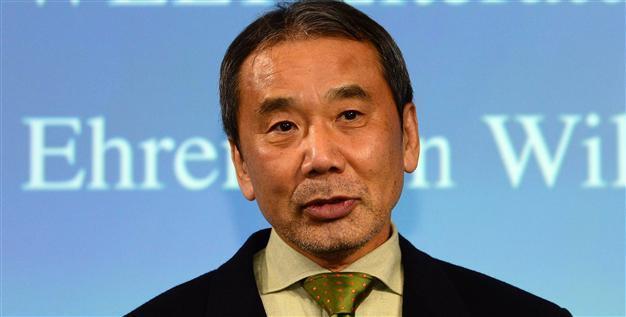Japan novelist Murakami says HK democracy protests not in vain
TOKYO - Agence France-Presse

Murakami says he regrets that Hong Kong's democracy protests did not bring the changes demanded by demonstrators, but their actions were not in vain. The writer made the remarks on March 2, 2015. AFP Photo.
Japanese novelist Haruki Murakami says he regrets that Hong Kong's democracy protests did not bring the changes demanded by demonstrators, but their actions were not in vain.The writer made the remarks on Monday in his online agony uncle column, responding to a question from a 22-year-old woman who said she took part in last year's street protests in the semi-autonomous southern Chinese city.
"I regret that a lot of things did not go as hoped," said Murakami, 65, one of Japan's best known writers who has repeatedly been tipped as a future Nobel laureate.
"But I think what you did for democratisation will never be in vain. It remains a fact, and no one can ignore that fact. Please keep trying to change the world, even just a little. I give my support," he added.
The protests, which began in September and lasted for more than two months, began after Beijing said that candidates for the 2017 vote for Hong Kong's next leader would be vetted by a loyalist committee.
Campaigners described the decision as "fake democracy", but leaders in Hong Kong and China made no concessions despite the 79-day protests.
In November Murakami sent a message of support to Hong Kong's pro-democracy protesters, likening their struggle to the fight to bring down the Berlin Wall as he collected a prize in the German capital.
When he received the 2009 Jerusalem Prize, Israel's highest literary honour for foreign writers, he obliquely criticised authoritarian systems in the Middle East for claiming the lives of innocent civilians.
In a recent interview, he also chided his own country for shirking responsibility over its World War II aggression and the Fukushima nuclear disaster.
















